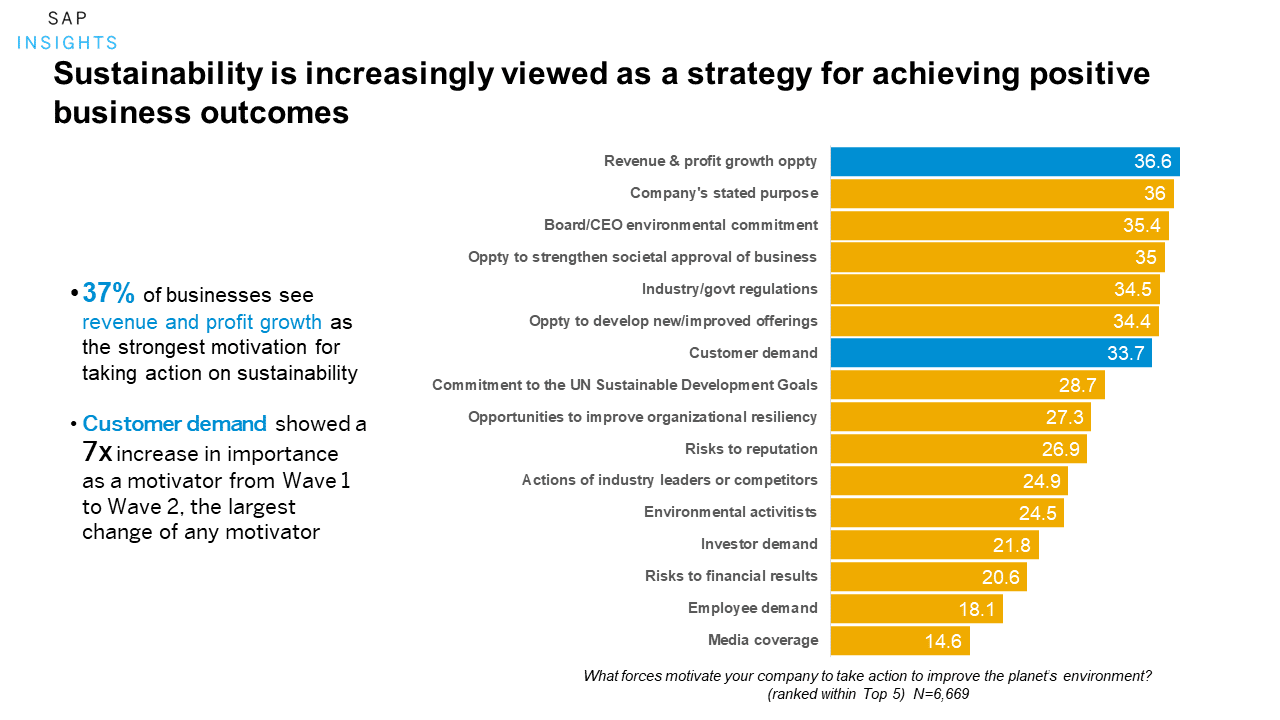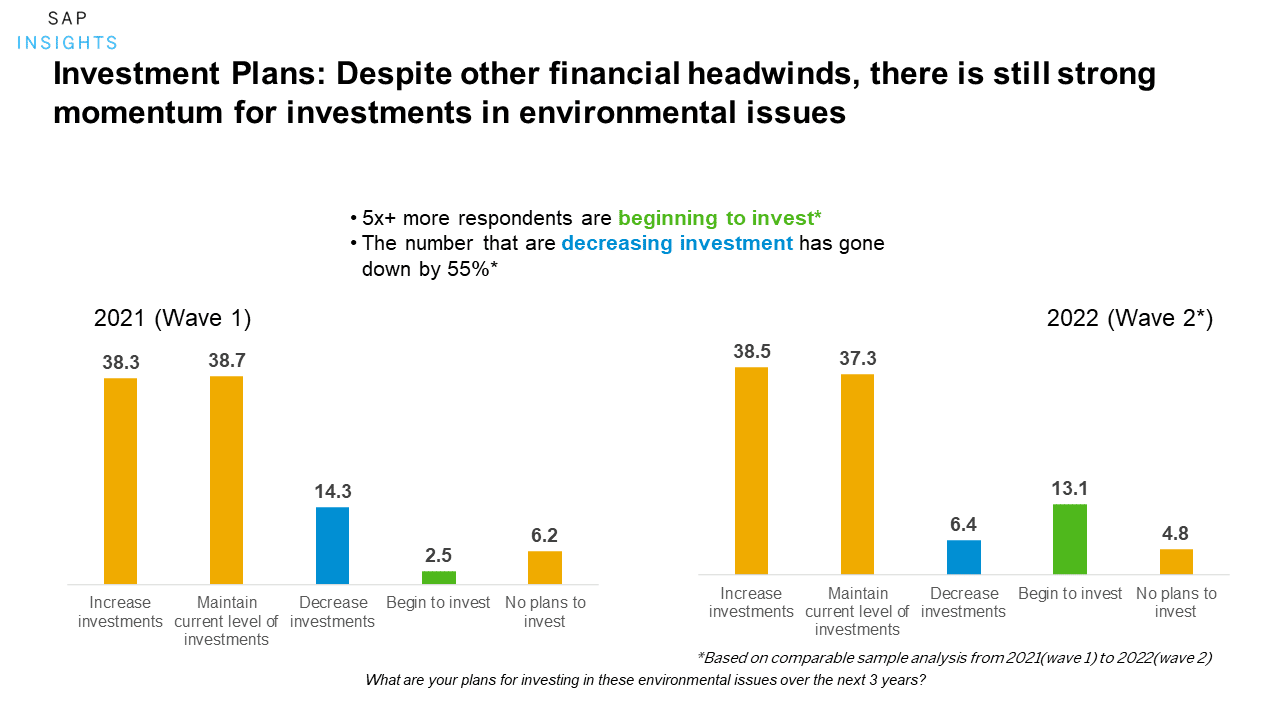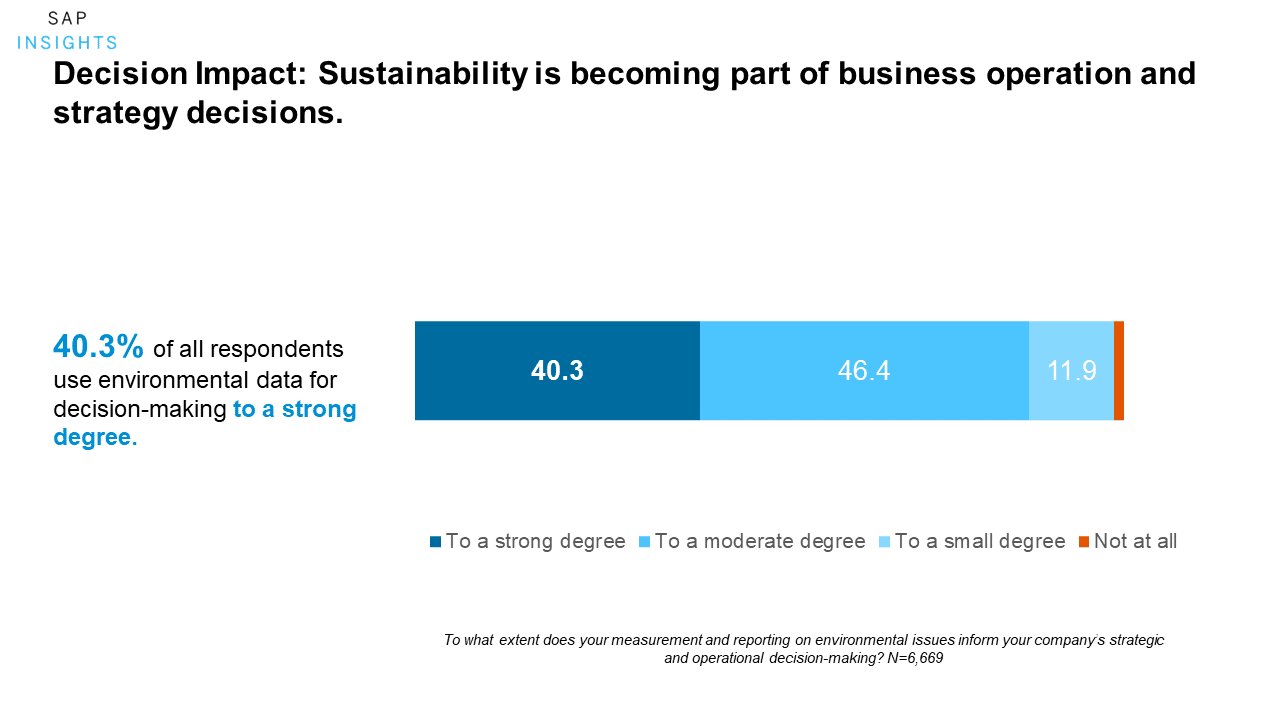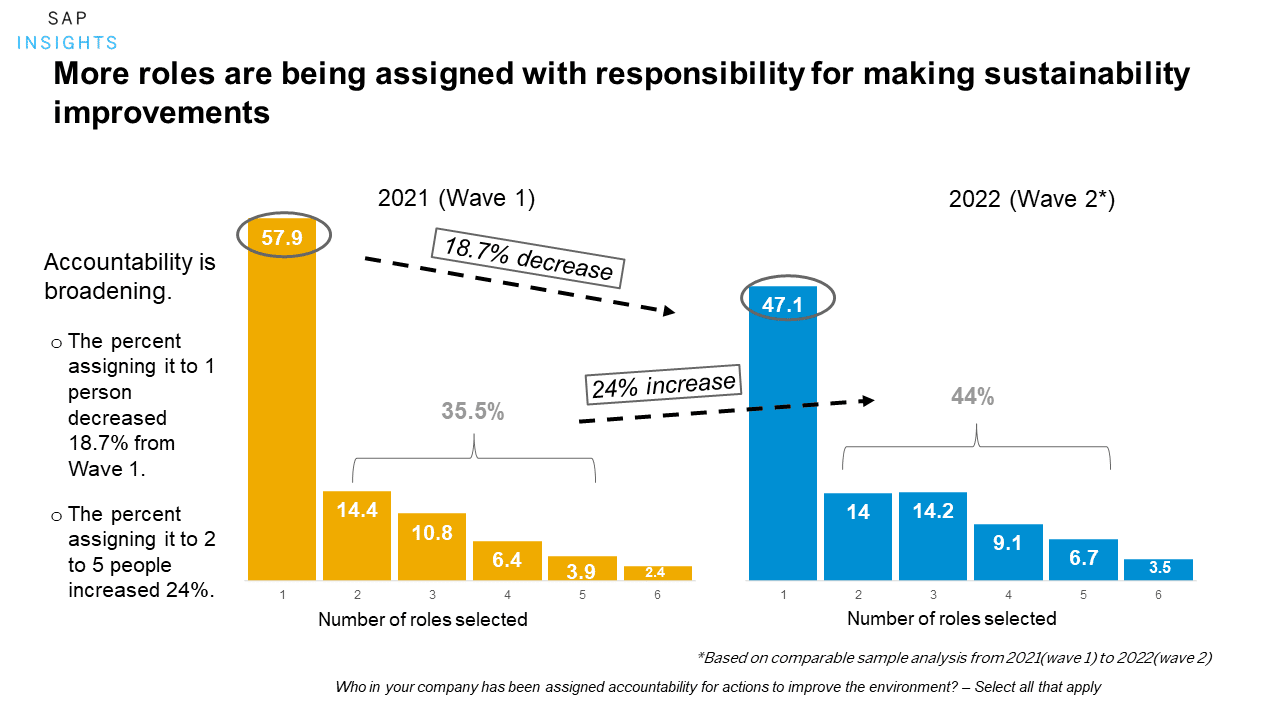Companies are maturing when it comes to embedding sustainability into their operations, new research conducted by SAP Insights reveals.
The latest research sought to discover, among other things, how the motivations and barriers of businesses adopting more sustainable actions are evolving. It comes ahead of the UN Climate Change Conference (COP27), which will be held at Sharm El-Sheikh, Egypt, in November, and follows an 2021 sustainability study conducted by SAP Insights. The research was based on a survey of over 6,000 businesspeople across 40 countries and 29 industries.
An Evolution in Motivation
While revenue and profit growth, together with company purpose and commitments, were still the top two motivators for companies operating sustainably, customer demand showed a seven-fold increase in importance between the earlier research and the latest. This was the largest change of any motivator and indicates an increase in the strength of customer influence on a business’s sustainability strategy.
 Changing Barriers to Progress
Changing Barriers to Progress
Similarly, there has been an evolution in the barriers to progress. Aside from uncertainty generated by the COVID-19 pandemic, this year’s results showed that a lack of funding, incoherent strategies, and difficulty proving the return on investment of sustainable practices were the top barriers preventing businesses from acting on sustainability.
Measuring environmental impact, embedding sustainability into processes, and aligning actions with strategy are barriers that have dropped in importance. The reduced importance of these barriers’ points to a maturation of business processes and a better understanding of sustainability.
More Investment to Combat Climate Change
Financially, most companies are planning to increase their investment in addressing issues caused by climate change over the next three years. This year’s survey also showed that five times more companies are planning to start investing in sustainability compared to last year, whereas the number of businesses planning to decrease their investment fell by 55%.
 Shareholders generally support businesses investing in sustainability. Most businesspeople surveyed believe their financial stakeholders are largely tolerant of their business’s sustainability goals, even at the cost of deferred or reduced profitability.
Shareholders generally support businesses investing in sustainability. Most businesspeople surveyed believe their financial stakeholders are largely tolerant of their business’s sustainability goals, even at the cost of deferred or reduced profitability.
Strategically Speaking
Businesses are recognizing that operating more sustainably is not just a “nice to do” but a way of creating value (profitability) and differentiation (competitiveness) in the marketplace.
To this end, more businesses – 86.7% of those surveyed – say they are using data to inform strategic and operational decision-making.
 This could be driven in part by the improvement in the quality of data available thanks to the fact that metrics are maturing, relying less on assumptions and estimates. Companies are also developing more in-house measurement systems. Nevertheless, business leaders said they need more frequent and reliable data with better transparency in terms of the calculations and assumptions used.
This could be driven in part by the improvement in the quality of data available thanks to the fact that metrics are maturing, relying less on assumptions and estimates. Companies are also developing more in-house measurement systems. Nevertheless, business leaders said they need more frequent and reliable data with better transparency in terms of the calculations and assumptions used.
“Now that so many businesses are integrating sustainability into their most important decisions, they can and should demand that sustainability data be as comprehensive and accurate as any other type of data,” says Vivek Bapat, senior vice president for Purpose and Sustainability Marketing and Solutions at SAP.
People and Accountability
Earlier SAP Insights research showed that integrating sustainability into operations was being driven almost solely by the C-suite, but the latest research shows more diversification of responsibility. More sustainability and risk managers are now being held accountable in addition to CEOs and chief sustainability officers. In fact, sustainability managers top the list of employees accountable for embedding sustainability, which fits with the global trend toward companies making more “green” hires.
 This shared ownership shows companies are integrating sustainability more broadly within their businesses.
This shared ownership shows companies are integrating sustainability more broadly within their businesses.
“Sustainability must become a talent that everyone within the business shares,” says Bapat. “That will only happen if top management makes sustainability part of how the business defines success so that employees understand why they need to incorporate sustainability into how they think and what they do.”
A Positive Outlook
While challenges around strategy, funding, and data transparency still exist, this research leads us to conclude that businesses are maturing when it comes to embedding sustainability. The survey results suggest that this is because they are sharing accountability, becoming more motivated by their commitments to their customers, and are supported by their investors. They also have access to improved data and are being incentivized by better business outcomes.



